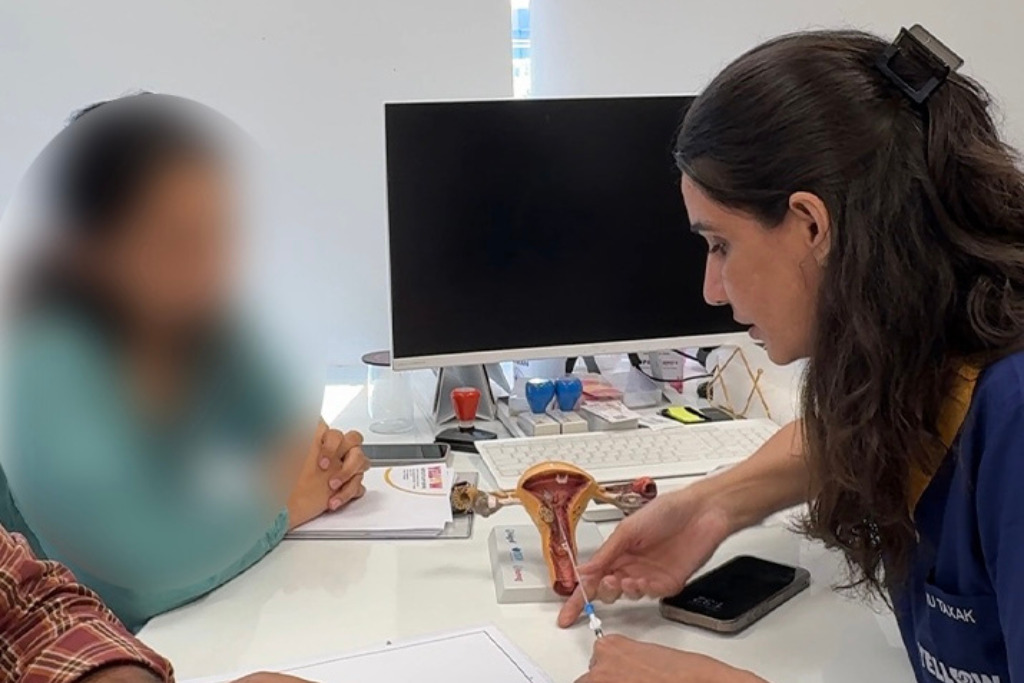Imagine finding out you are pregnant when you were trying to conceive for years- it’s supposed to be one of the most exciting moments of your life. However, what if something just doesn’t feel right? Maybe you are experiencing strange pain or unusual bleeding, and deep down, you sense that something is off. The joy you waited for so long feels like it’s slipping away, and that fear can be devastating. It’s scary, confusing, and overwhelming. One possibility that doctors consider in such cases is an ectopic pregnancy- a condition you definitely need to know about because early detection can save your health and even your life.
So, before you start searching for IVF treatment costs in Gurgaon, let’s walk through what ectopic pregnancy is, what symptoms to look out for, and why it’s so important to catch it early.
So, What Exactly Is an Ectopic Pregnancy?
Normally, when a sperm fertilizes an egg, the egg travels down the fallopian tube and implants itself neatly into the lining of the uterus, where it grows into a baby. In an ectopic pregnancy, the fertilized egg gets stuck and implants outside the uterus, most often in one of the fallopian tubes (hence it’s sometimes called a “tubal pregnancy”).
Hearing that your body might not be able to nurture your precious baby might be a crushing realization, but the big problem is the fallopian tube isn’t designed to hold a growing embryo, which is why as the embryo grows, it can cause the tube to rupture, and the entire thing becomes a life-threatening emergency. That’s why recognizing the symptoms early is so crucial.
How do we differentiate an ectopic pregnancy from a normal one? Here are the signs you should never ignore.
Early Symptoms of Ectopic Pregnancy
In the very beginning, an ectopic pregnancy can feel just like a normal pregnancy. You might miss your period, feel some breast tenderness, and even experience some nausea. It’s heartbreaking to think everything seems fine when a hidden danger is growing inside. That’s part of what makes it tricky, but there are some symptoms that should raise a red flag. Here’s what to watch for:
1. Sharp or Stabbing Abdominal Pain
The pain in ectopic pregnancy isn’t your typical cramping. It is often described as sharp, stabbing, or intense, and usually focuses on one side of your lower abdomen or pelvis. Feeling this kind of pain when you are supposed to be feeling excitement can leave you feeling helpless and terrified, but it can become constant and severe if it’s not treated.
2. Vaginal Bleeding
Light spotting can be normal in early pregnancy. However, if you notice unusual vaginal bleeding, especially if it’s heavier than spotting, bright red, or paired with pain, that could be a sign that something is wrong. Seeing blood when you are expecting a new life, can trigger a deep, gut-wrenching fear, but you need to understand that the bleeding in ectopic pregnancy is often different than your usual period.
3. Shoulder Tip Pain
This one surprises a lot of people. Shoulder tip pain happens when internal bleeding irritates nerves that connect to your shoulder. If you suddenly notice strange pain in your shoulder when lying down, it could be a symptom of a ruptured ectopic pregnancy and needs urgent medical attention.
4. Weakness, Dizziness, or Fainting
Are you feeling lightheaded, or dizzy or did you actually faint during your early days of pregnancy? These signs may indicate internal bleeding, which is one of the most dangerous complications of an ectopic pregnancy. If you experience these symptoms, seek emergency care immediately.
5. Bowel or Bladder Problems
Sometimes, the growing embryo presses against your rectum or bladder, causing symptoms like pain during bowel movements, difficulty passing urine, or an urgent need to go. While these could also happen with a normal pregnancy, if they appear alongside severe pain or bleeding, get checked out.

Risk Factors: Who Should Be Extra Cautious?
While ectopic pregnancy can happen to anyone, certain factors raise your risk, including:
- Previous ectopic pregnancy
- Pelvic inflammatory disease (PID)
- Endometriosis
- Fertility treatments like IVF
- Tubal surgeries (such as to fix blocked fallopian tubes)
- Smoking
If any of these apply to you, it’s even more essential to stay alert to early symptoms.
What Should You Do If You Suspect an Ectopic Pregnancy?
Don’t wait. Call your doctor immediately if you experience any of the symptoms mentioned above, especially if you are pregnant and something feels off. Your doctor will likely do a combination of blood tests, ultrasounds, and physical exams to determine what’s going on.
And here’s the thing: ectopic pregnancies cannot continue. Unfortunately, the embryo can’t survive outside the uterus, and prompt treatment is necessary to protect your health and fertility.
Need to consult a fertility specialist to talk about the early symptoms of ectopic pregnancy or know more about IVF charges in Gurgaon? Reach out to the professionals at Yellow IVF today!




